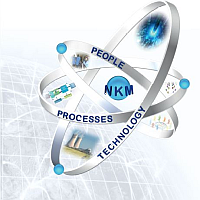Conveners
Technical Session 13: KM Methodologies and Implementation Approaches
- Larry Prusak
- Monica (Co-Chair) Sbaffoni (IAEA)
Mr
Jack Sheldon
(International Electrotechnical Commission)
10/11/2016, 09:00
Track 1: Strategic and cross-cutting KM issues in organizations
oral
An International Standard is a document, established by consensus and approved by a recognized body that provides, for common and repeated use, rules, guidelines or characteristics for activities or their results, aimed at the achievement of the optimum degree of order in a given context. As such it is a mechanism for sharing knowledge in a particular field. The consensus process used to...
167.
Introducing Knowledge Management into the Integrated Management System of Nuclear Organizations
Mr
Yanko Yanev
(Nuclear Knowledge Management Institute)
10/11/2016, 09:15
Track 1: Strategic and cross-cutting KM issues in organizations
oral
The analysis for introducing knowledge management into an integrated management system in nuclear organizations, conducted by NKMI, and discussed in a number of meetings in IAEA and other organizations has shown that currently there is no full and comprehensive implementation of KM in IMS. NKMI has suggested and developed a common, systematic approach for introducing Knowledge Management in...
Ms
Danielle Couvreur
(SCK•CEN ǀ Belgian Nuclear Research Centre)
10/11/2016, 09:30
Track 1: Strategic and cross-cutting KM issues in organizations
oral
2010 the Belgian Nuclear Research Centre SCK•CEN decided to implement an ECM platform in order to manage its information. The main objectives were to centralise in one place all the right and latest versions of information, to improve the usage of internal information and to enhance the efficiency of our activities by standardisation and by supporting document management processes. A program...
Mr
Ian Mitchell
(IHS Markit)
10/11/2016, 09:45
Track 1: Strategic and cross-cutting KM issues in organizations
oral
The nuclear industry is knowledge-intensive and includes a diverse number of stakeholders. Much of this knowledge is at risk as engineers, technicians and project professionals retire, leaving a widening skills and information gap.
This knowledge is critical in an increasingly complex environment with information from past projects often buried in decades-old, non-integrated systems...

